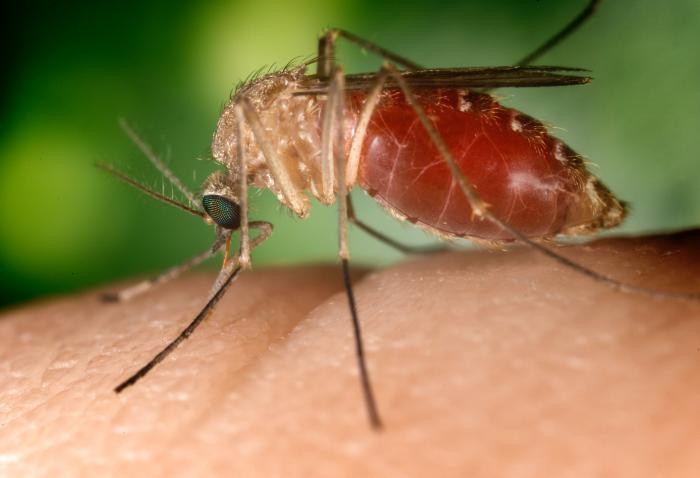Mosquitos Hunt Humans by Smelling Breath and Skin Odours

Mosquitoes track down humans from a distance by the smell of carbon dioxide on our breath and then find exposed areas through skin odours.
Mosquitoes are the most deadly animal on the planet, killing an estimated two million people every year.
Researchers at the University of California have found that female mosquitoes, which transmit deadly diseases like malaria and dengue fever, are attracted to humans by smelling the CO2 we exhale.
Published in the journal Cell, the scientists found that the mosquito receptors that detect CO2 are the same ones that detect skin odours, which explains why they are attracted to bedding and worn clothes even when there is no CO2 present.
Before their study, how mosquitos were able to smell us was unknown. Researchers say their new finding is critical for the understanding of how mosquitos are attracted to us because it identifies the dual receptor as a key target for anti-mosquito treatments.
Researchers say they can use their findings to develop a method of disrupting the receptor, making it more difficult for mosquitoes to find human prey.
Principle investigator Anandasankar Ray said: "It was a real surprise when we found that the mosquito's CO2 receptor neuron, designated cpA, is an extremely sensitive detector of several skin odorants as well, and is, in fact, far more sensitive to some of these odour molecules as compared to CO2.
"For many years we had primarily focused on the complex antennae of mosquitoes for our search for human-skin odor receptors, and ignored the simpler maxillary palp organs."
Currently, CO2 is the main lure in mosquito traps. However, generating CO2 requires burning fuel, evaporating dry ice or releasing compressed gas, which are all expensive and impractical for developing countries.

Scientists tested their findings by shutting down the activity in cpA in a mosquito that spreads dengue. They then tested the mosquito's behaviour around human foot odour.
Findings showed the mosquito's attraction to the food-odour laden product was greatly reduced.
They then used a chemical computational method to make a list of desirable compounds - based on smell, safety, cost and if they occurred naturally.
Several compounds inhibited or activated cpA neurons in mosquitos, then developed two that had already been approved by the US Food and Drugs Administration to test further.
Ethyl pyruvate is a fruity smelling flavour agent used in foods that inhibits cpA, while cyclopentanone is a minty-smelling compound that activates cpA.
Researchers found the fruit scent greatly reduced the mosquito's attraction to the human arm, while the minty-scented compound vastly increased its attraction.
Ray said: "Such compounds can play a significant role in the control of mosquito-borne diseases and open up very realistic possibilities of developing ways to use simple, natural, affordable and pleasant odours to prevent mosquitoes from finding humans.
"Doors that block this dual-receptor for CO2 and skin odour can be used as a way to mask us from mosquitoes. On the other hand, odours that can act as attractants can be used to lure mosquitoes away from us into traps.
"These potentially affordable 'mask' and 'pull' strategies could be used in a complementary manner, offering an ideal solution and much needed relief to people in Africa, Asia and South America - indeed wherever mosquito-borne diseases are endemic. Further, these compounds could be developed into products that protect not just one individual at a time but larger areas, and need not have to be directly applied on the skin."
© Copyright IBTimes 2025. All rights reserved.






















